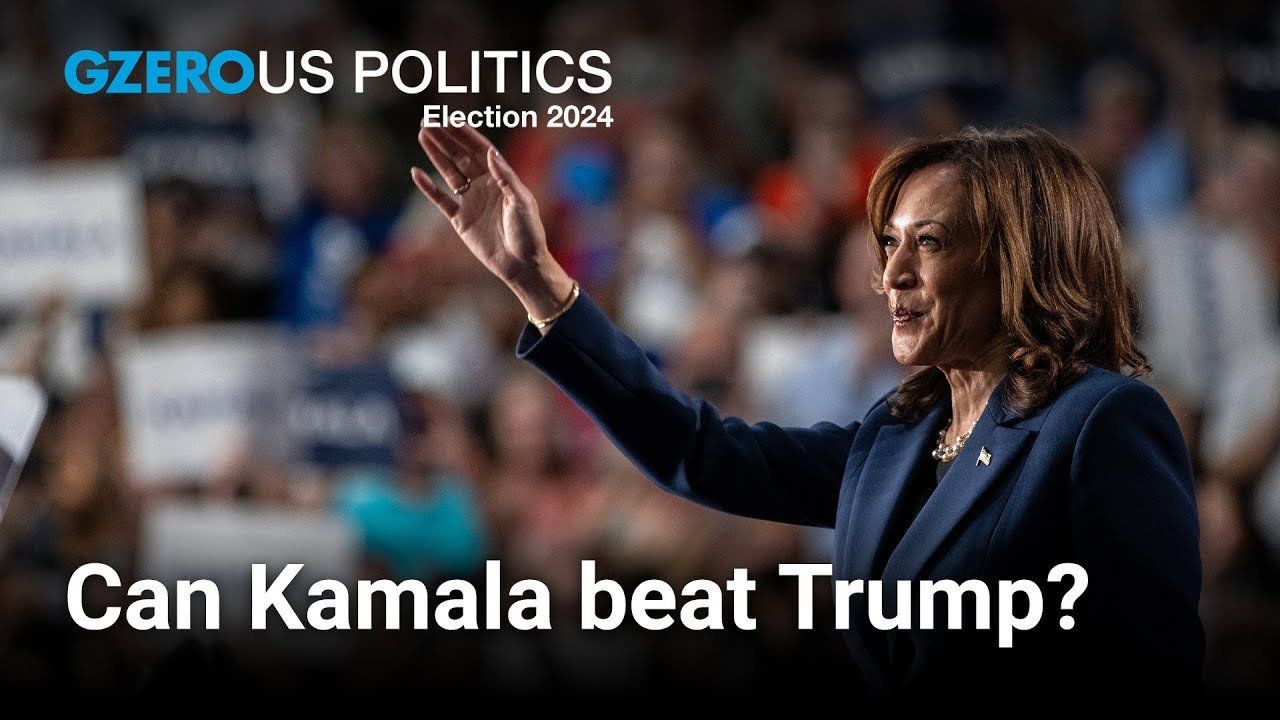US Politics In 60 Seconds
Will Kamala Harris’ momentum last in the race against Trump?

Will Kamala Harris’ momentum last in the race against Trump? | US Politics

Jon Lieber, Eurasia Group's head of research and managing director for the firm's coverage of United States political and policy developments, shares his perspective on US politics from Washington, DC.
What we're watching in US Politics:Kamala Harris is off to a blazing start since replacing Joe Biden as the Democrats' pick for the presidential race, raking in almost $250 million in just one week. The big question: Can she maintain this momentum in the race against Donald Trump?
Joe Biden drops out of the race last Sunday, unexpectedly, as the oldest candidate ever, instantly making Donald Trump the new oldest nominee in American presidential history. Now he's going to have to run against a Democrat who's 19 years younger than he is, and the sitting Vice President of the United States, Kamala Harris. She's off to a scorching hot start raising almost $250 million, a quarter of a billion dollars in a single week since Biden announced he was dropping out, and she's picking up a lot of buzz and excitement online.
But the real question is, is her current momentum about Harris? Or, is it just about someone other than Biden? That's really what the rest of this campaign is going to be about. Harris comes in with some strengths that Biden didn't have, namely the fact that three-quarters of the population doesn't think she's too old to be president, but she probably also has some weaknesses where Biden had unique strengths, such as his strength with working-class white voters in the Midwest. On that front, Harris is just kind of an unknown.
We can't really trust what the polls are telling us just yet, because what you'd expect to see after a big event would be a surge in support from Democrats, who are more eager to respond to polls at the moment, so it might be a few weeks before we actually have an understanding of where this race stands in public opinion polling. Then there's the question of Harris herself who hasn't really done much to distinguish herself as vice president and ran a pretty poor presidential primary campaign in 2020 that led to her dropping out and becoming the vice-presidential pick. So is this election going to be about Harris, the person, versus Donald Trump, who Americans know and either love or hate very well? Or is it going to be about Kamala Harris, the meme, running against Donald Trump?
Right now, she's polling as a generic Democrat would, doing two to four points better than Biden would nationally. We don't really have a lot of granularities on what's happening at the swing states, but it looks like this is starting to be a competitive race, and we have to see how Harris holds up once the American people get a better look at her. This is going to happen through her campaign appearances, which will be tight and scripted, but probably the most important event coming up on the election calendar is going to be the debate, where Harris won't have a chance to answer scripted questions or read off a teleprompter and is going to have to face Donald Trump live.
As for Trump, suddenly, this race that was breaking strongly in his favor is now sort of starting to turn against him because of the fact that Kamala Harris now can position herself as the change candidate, and talking about a break from the past, as Trump as the old former president that Americans maybe want to move on from. So very fluid dynamic in the race. Trump is probably still favored, just because he has more paths to victory through the Electoral College, but this could all change drastically over the coming weeks. Thanks for watching, and stay tuned for what we're watching in US politics next week.
Despite a ceasefire in Gaza, Israel is still not letting foreign journalists in to independently verify what’s happening on the ground, CNN’s Clarissa Ward tells Ian Bremmer on GZERO World.
Mastercard Economic Institute's Outlook 2026 explores the forces redefining global business. Tariffs, technology, and transformation define an adaptive economy for the year ahead. Expect moderate growth amid easing inflation, evolving fiscal policies, and rapid AI adoption, driving productivity. Digital transformation for SMEs and shifts in trade and consumer behavior will shape strategies worldwide. Stay ahead with insights to help navigate complexity and seize emerging opportunities. Learn more here.
Global conflict was at a record high in 2025, will 2026 be more peaceful? Ian Bremmer talks with CNN’s Clarissa Ward and Comfort Ero of the International Crisis Group on the GZERO World Podcast.
On Ian Explains, Ian Bremmer takes a look at the growing surge in global conflict and the ripple effects of so much violence, war, and armed struggle throughout the world.